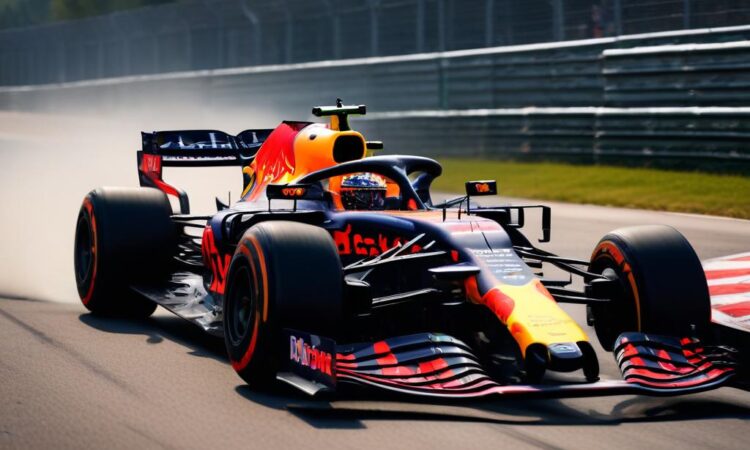F1 Q&A: Why is Verstappen ‘always cast as the villain’?: BBC F1 correspondent Andrew Benson answers your questions following Max Verstappen’s world title win at the Las Vegas Grand Prix
The Las Vegas Grand Prix concluded with Max Verstappen securing his second consecutive Formula 1 World Championship title. His dominant performance, however, has once again sparked debate about his public image. Many perceive him as a villain, a controversial figure within the sport. To address these perceptions and the many questions surrounding Verstappen’s persona, we spoke with BBC F1 correspondent Andrew Benson, who offers insightful answers to your queries.
Q: Why does Max Verstappen seem to attract so much criticism, even when he’s clearly winning fairly?
A: This is a complex question with no single answer. Part of it stems from his aggressive driving style. He pushes the boundaries, often leaving little room for error for his rivals. While this can be thrilling for spectators, it can also lead to incidents and clashes, creating animosity amongst other drivers and their fans. Some interpret this as a lack of sportsmanship, while others see it as a reflection of his determination and relentless pursuit of victory. There’s also a natural tendency for success to breed envy and attract negative attention. When you consistently dominate a sport, you’ll invariably become a target. Verstappen’s youth also played a role; he arrived in F1 with considerable talent but also a certain immaturity, leading to several controversial moments early in his career.
Q: Is the media portrayal of Verstappen unfair? Does it contribute to the ‘villain’ narrative?
A: The media’s role is undeniably significant in shaping public perception. Sensationalism sells, and focusing on controversies and conflicts is often more engaging than showcasing consistent excellence. While some media outlets might be overly critical, it’s crucial to remember that journalism also involves holding powerful figures accountable. Verstappen’s competitive nature and his willingness to express his opinions openly, sometimes in a forthright manner, further fuel the narratives.
Q: How does Verstappen’s personality contribute to this image?
A: Verstappen is known for his directness and bluntness. He doesn’t shy away from expressing his displeasure or voicing his frustrations. While honesty is admirable, his communication style can sometimes be perceived as arrogant or disrespectful. This contrasts with the more diplomatic approaches favored by some of his competitors. However, it’s important to distinguish between his on-track persona and his off-track behavior; he is demonstrably different outside the car. This difference in presentation further complicates the image presented to the public.
Q: Does the rivalry with Lewis Hamilton contribute to the villain portrayal?
A: The intense rivalry between Verstappen and Lewis Hamilton undeniably intensified the focus on his actions and amplified the negative narratives surrounding him. Their clashes, particularly in 2021, were highly publicized and deeply divisive, creating a strong sense of “us vs. them” amongst fans. This rivalry certainly magnified existing perceptions of Verstappen, solidifying the ‘villain’ image for many who already held that view. The level of scrutiny and media attention during this period was unprecedented.
Q: Are there any aspects of Verstappen’s personality or behaviour that might mitigate the ‘villain’ label?
A: While the public image might suggest otherwise, many who know Verstappen personally describe him as a dedicated, highly skilled driver with unwavering focus and determination. His commitment to the sport is undeniable. He’s also shown moments of sportsmanship and respect, although these moments often get overshadowed by the more controversial ones. Furthermore, his impressive racing skills and consistent performance demonstrate an undeniable talent, making it difficult to fully dismiss his achievements.
Q: How can the narrative surrounding Verstappen be shifted towards a more balanced perspective?
A: A more balanced narrative requires a conscious effort from both the media and the fans. The media needs to move away from sensationalism and focus on providing a more comprehensive portrayal of Verstappen, highlighting both his positive and negative aspects. Fans should critically evaluate the information they consume and avoid overly polarized views. Recognizing the human element in sports – the emotions, rivalries, and mistakes – is also crucial. Ultimately, it is up to each individual to form their own opinion, based on a full and unbiased understanding of the situation.
Q: Will this ‘villain’ image follow Verstappen throughout his career?
A: It’s difficult to say definitively. Public perception can evolve over time. If Verstappen continues his success while mitigating the controversial incidents and demonstrating more consistent sportsmanship, the narrative could gradually shift. However, the intense scrutiny and the history of his past actions mean the ‘villain’ tag might remain attached to him for a considerable period. Only time will tell if he can fully change his public image. His maturity and evolution as a driver will likely play a defining role.
Q: In conclusion, what’s your overall assessment of the ‘Verstappen as villain’ narrative?
A: The “Verstappen as villain” narrative is a complex interplay of factors, including his aggressive driving style, media portrayal, his communication style, and high-profile rivalries. It’s a simplification of a more nuanced reality. While some of the criticism is justified, it’s also important to acknowledge his exceptional talent and unwavering dedication to the sport. The narrative is likely to persist to some degree, but the balance and the perception may well shift over the years as he matures and adapts.
This Q&A with Andrew Benson provides valuable insight into the multifaceted nature of Max Verstappen’s public image. It highlights the importance of considering all perspectives and avoiding oversimplification when evaluating individuals in the public eye.

